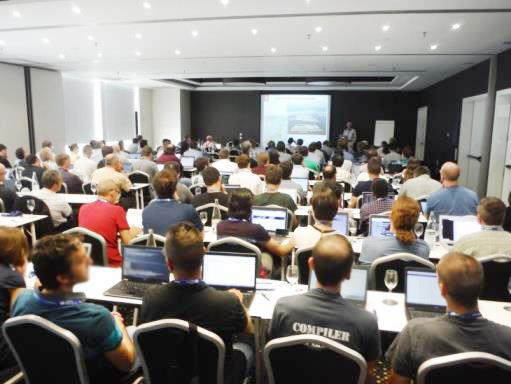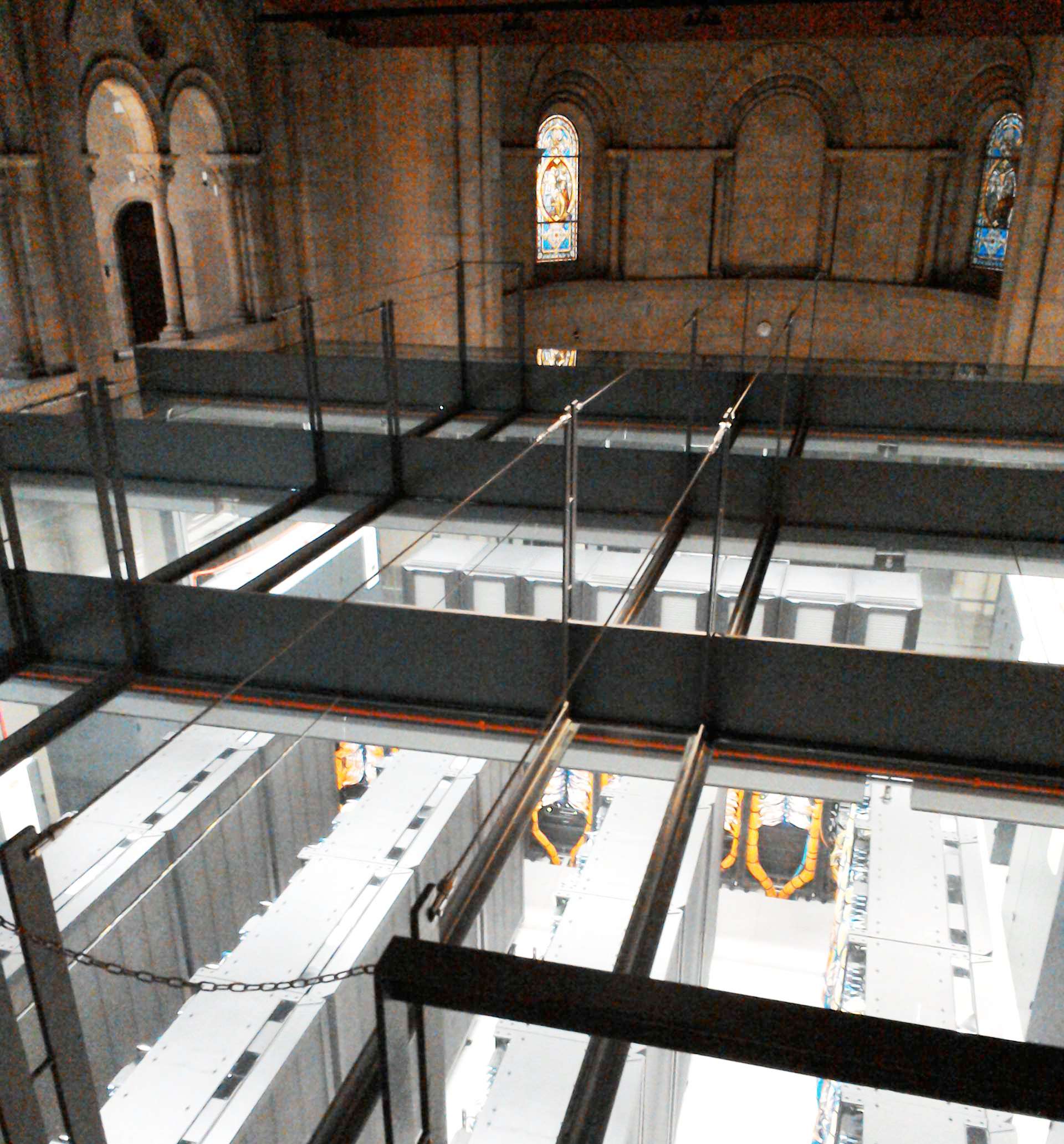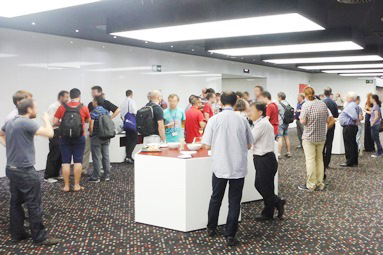

JLESC2015 Report (June 29 — July 1, 2015 in Barcelona)

The 3rd workshop of the Joint Laboratory for Extreme-scale Computing (JLESC) was held in Barcelona, Spain, June 29 to July 1, 2015. Representatives of six institutions operating supercomputers in the United States, Europe, and Japan gathered together for this workshop on software technology. There were nearly 100 participants, including students from Spain.
*Speaker report
What is JLESC?
JLESC is an international organization focused on software challenges found in complex high-performance computers and is currently made up of six organizations including the Argonne National Laboratory in the United States and the Jülich Supercomputing Center in Germany. The group holds workshops twice a year, as well as engaging in personnel exchange and undertaking a number of joint research projects.
Workshop program
This time the workshop featured six sessions on different topics with 7 to 8 presentations in each session. Seven AICS researchers either made presentations or acted as moderators for reports on their latest research. There were also a number of parallel sessions, and participants were able to select the topics of most interest to them.
BSC supercomputer tour

After the keynote speech on the first day of the workshop, there was a tour of the Barcelona Supercomputer Center, famous for being located inside a former church. Tour participants got a first-hand view of the Mare Nostrum supercomputer, named in commemoration of Spain’s days of glory on the Mediterranean and Atlantic seaways.
2016 JLESC workshop in Kobe
 After workshops in Germany and France, a workshop will be held at AICS in Kobe in December 2016. Keep your eyes on our website for updates!
After workshops in Germany and France, a workshop will be held at AICS in Kobe in December 2016. Keep your eyes on our website for updates!
Speaker report
The JLESC’15 workshop, hosted in Barcelona, was a unique opportunity to view early work from different institutions to see if and how collaboration can be achieved.
The usual setting of conferences and workshops is for presenting work that has already taken a solid shape. On the contrary, the organizers of the workshop encouraged presentations of early stage work. This was very effective as the crowd engaged with speakers in a relaxed manner. This also was reflected in the side discussions in coffee breaks; it was easier to pinpoint potential areas of collaboration when the work is still in early stages and hasn’t yet taken shape.
Another notable point of the workshop is significant presence of presentations about HPC applications and not just the typical HPC research areas. I would extend to that by echoing a suggestion from Dr. Ukawa's presentation; having a theme for each workshop for an application domain.
Finally, on the personal level, the event was highly productive. In addition to feedback I received about my work, discussions with a group from ANL, Dr. Jesus from BSC, and Dr. Hwu from UIUC revealed potential points of collaboration that might lead to something fruitful if seriously pursued.
Dr. Mohamed Wahib Mohamed Attia
HPC Programming Framework Research Team
Organizers
INRIA, the University of Illinois, Argonne National Laboratory, Barcelona Supercomuting Center, Julisch Supercomputing Center and Riken AICS
Workshop Program
The plenary session will present 3 keynotes, each from a different region (America, Europe, Asia) on critical issues for Extreme Scale Computing and Data Analytics.
The parallel sessions will cover the following topics:
-Mini apps, Benchmarking, modeling
-Resilience
-Applications
-Programming models
-Performance tools
-I/O, storage, Big data
-in-situ data analytics, visualization
-Numerical Methods/Algorithms
-Cloud for HPC
Future Workshops
December 2-4, 2015: Bonn, Germany
June 2016: Lyon, France
December 2016: Kobe, Japan

